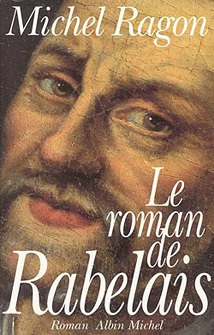This book is both a biography and a novel. The author takes us alongside Rabelais, an unorthodox monk, friend of Francis I, and the Du Bellay family. Rabelais, a Franciscan, then a Benedictine due to his thirst for intellectual knowledge. We follow him through his writings, his lively and sharp language. A popular language, accessible to all.
He lived during the time of the Reformation, of Protestantism. On both sides, they burn heretics. For both Luther and especially Calvin, show themselves to be ruthless with those not following their canons. Can we speak of Protestantism with this new intolerance imposed by the Lutherans and Calvinists? They burn bodies in the name of religion.
Rabelais, somewhat a disciple of Erasmus, remains faithful to the Catholic religion. Just like the master of humanism, he would like to reform the church and put an end to abuses. Pantagruel, a provocation, a message? A bit of both.
Rabelais mingles with kings, princes, prelates, even popes. He walks a tightrope and his adversaries await his fall to hand him over to the stake. Rabelais is a modern man. Michel Ragon allows us to enter into his intimacy and know him better.
A fascinating book, written like a novel about one of our great writers, a modern author whose writings will echo with the poets of the late 19th century. Rabelais was four, even five centuries ahead of his time. Yet it is well known that one is always wrong when being right ahead of others.
Thierry Jan


